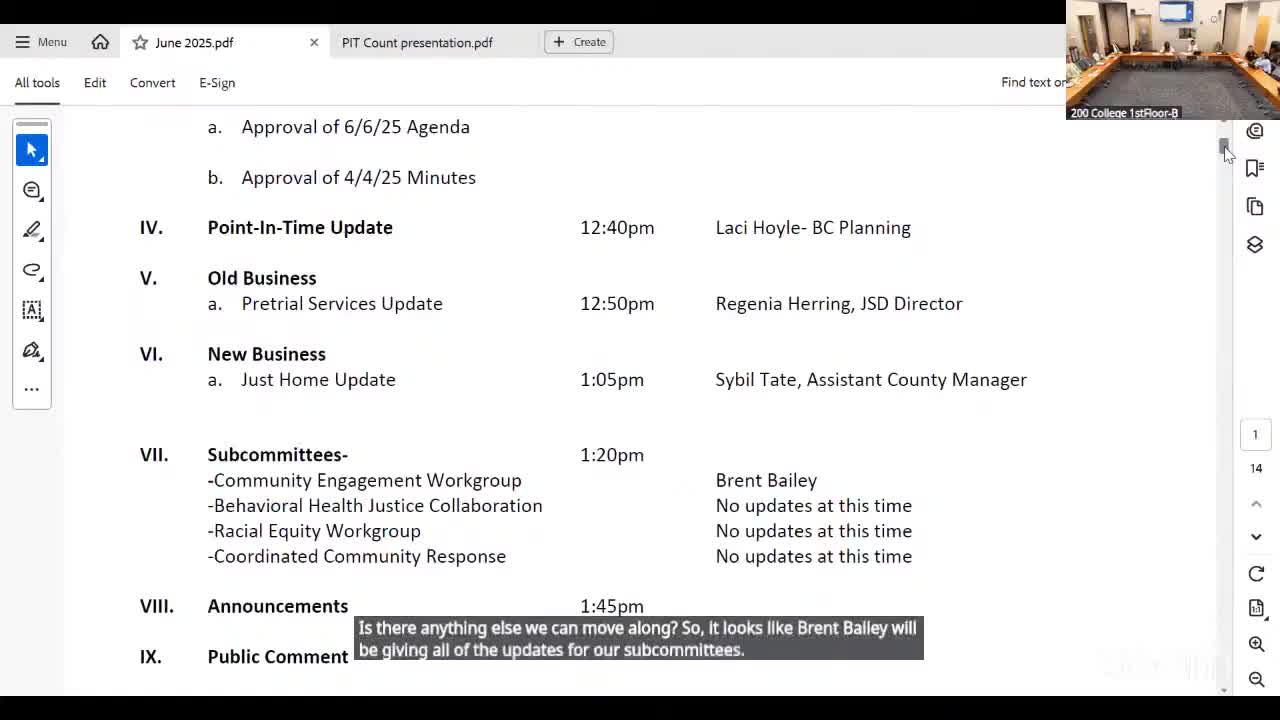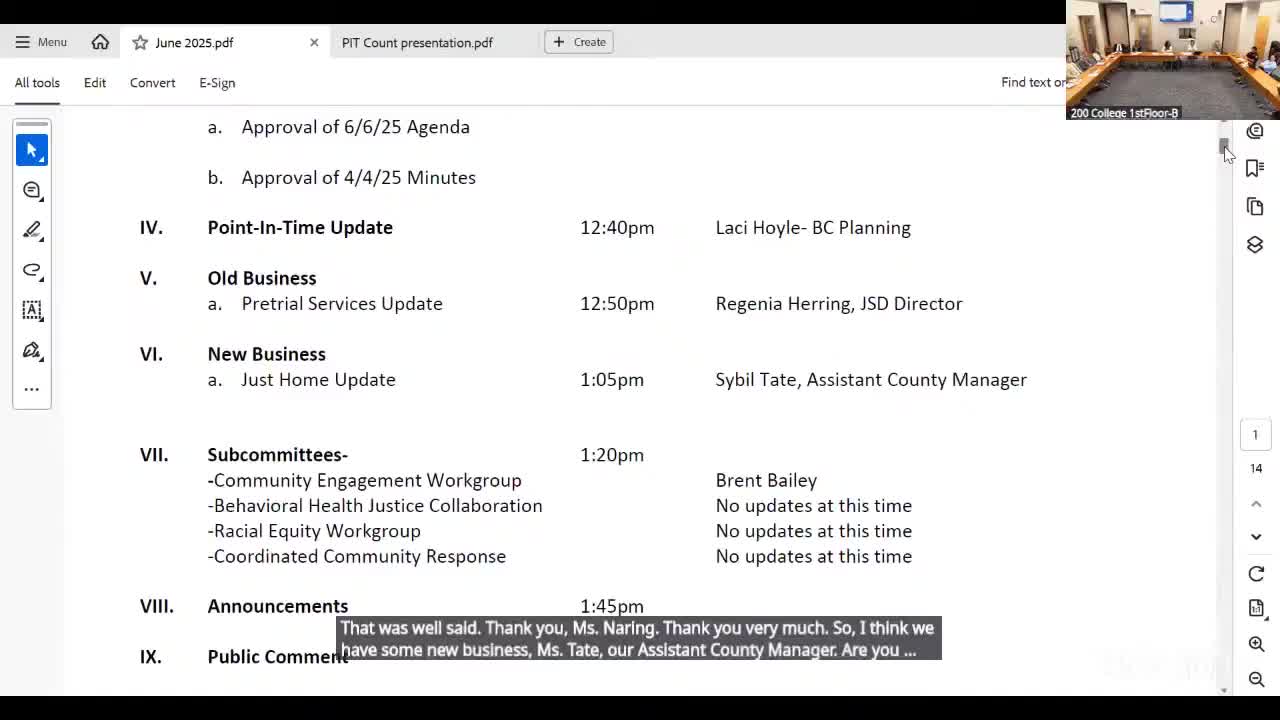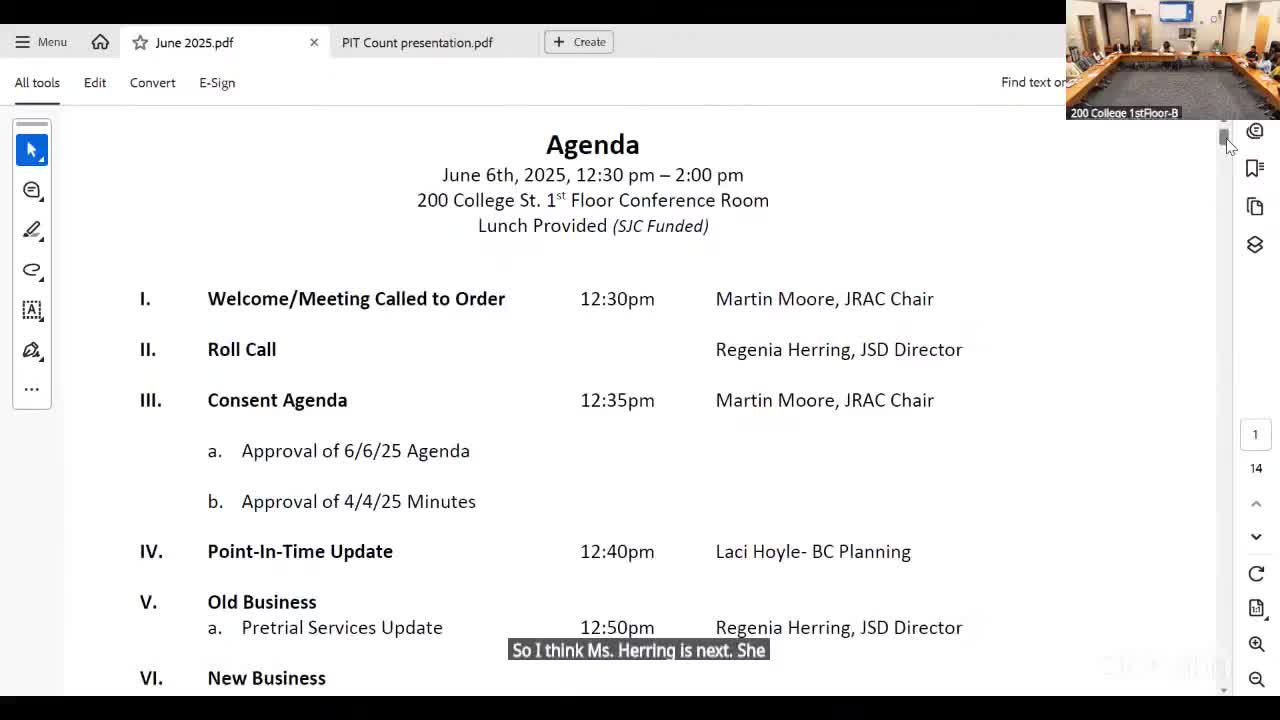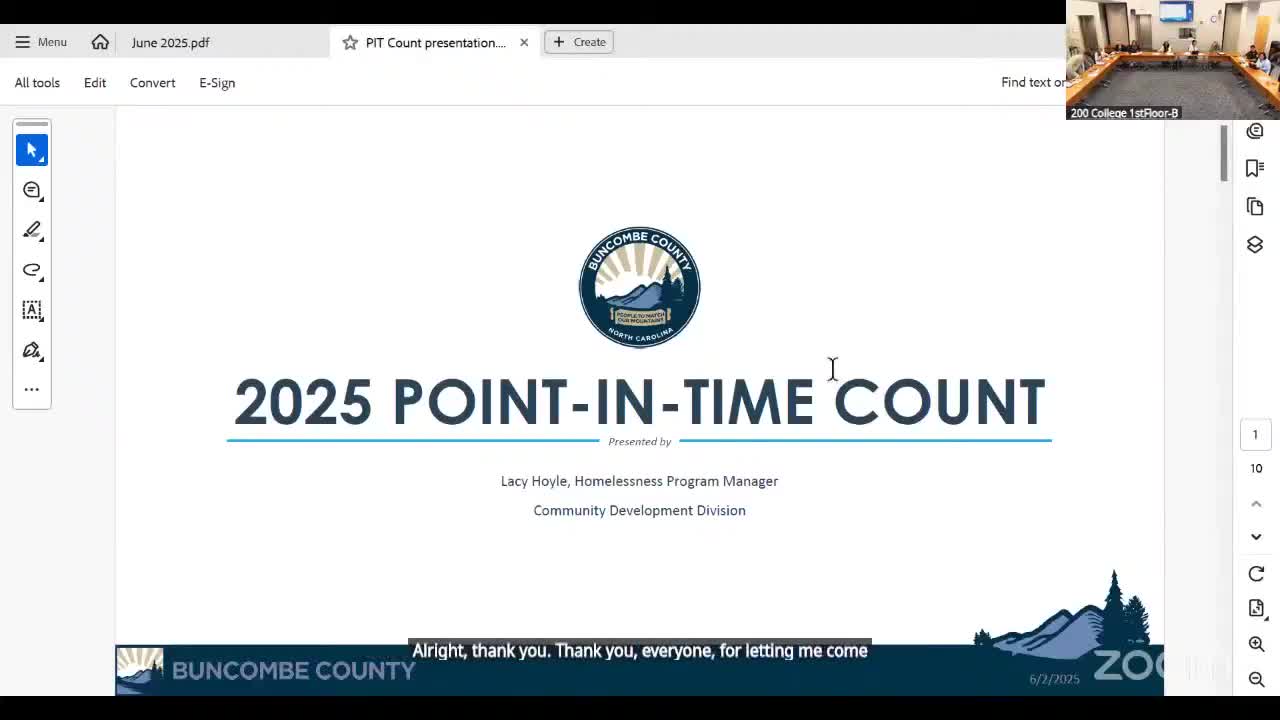Article not found
This article is no longer available. But don't worry—we've gathered other articles that discuss the same topic.

Justice Resource Center work group advances outreach, court appearance resources and reentry data review

Buncombe County awarded Just Home grant to plan housing for justice‑involved residents

Buncombe County pretrial services resumes intake after 90‑day pause; new policies and risk assessments introduced

